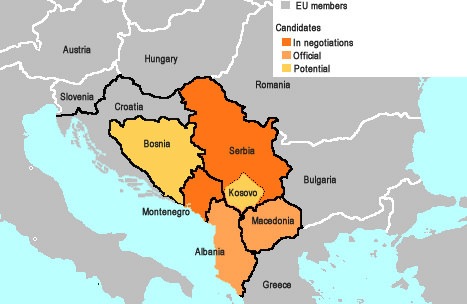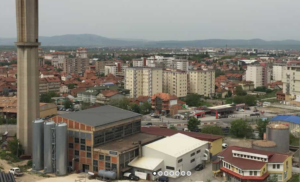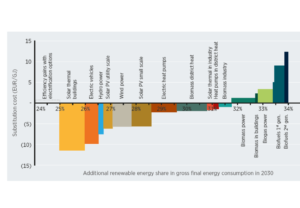Support for SDH feasibility studies in Western Balkans
September 21, 2018
 The European Bank for Reconstruction and Development is now funding feasibility studies under a programme called Renewable District Energy in the Western Balkans, or ReDEWeB for short. Town and city governments, and project developers, can send applications to the bank’s headquarters in London to receive grants for renewable energy systems at either new or existing district heating plants. In the case of ReDEWeB, renewable district energy systems are defined as producing heat or chilled water from solar thermal, biomass, biogas, geothermal, waste heat or heat pumps or the sea, lakes or rivers.
The European Bank for Reconstruction and Development is now funding feasibility studies under a programme called Renewable District Energy in the Western Balkans, or ReDEWeB for short. Town and city governments, and project developers, can send applications to the bank’s headquarters in London to receive grants for renewable energy systems at either new or existing district heating plants. In the case of ReDEWeB, renewable district energy systems are defined as producing heat or chilled water from solar thermal, biomass, biogas, geothermal, waste heat or heat pumps or the sea, lakes or rivers.Map: oscebih.org
“We really would like to drive the solar thermal agenda forward now, after having realised multiple biomass investments in the Western Balkans and Ukraine and having completed geothermal power projects in Turkey,“ said Greg Gebrail, Principal District Energy Specialist at the headquarters of the European Bank for Reconstruction and Development, or EBRD for short. He added: “There is already a tradition of utilising district heating systems in the Western Balkans, and there is great potential for building or expanding systems based on renewables.” In partnership with the government of Austria, the EBRD has launched the ReDEWeB fund to support the integration of renewables, especially solar thermal, into district energy installations. There are six countries in the Western Balkans, namely Albania, Bosnia and Herzegovina, FYR Macedonia, Kosovo, Montenegro and Serbia. Slovenia and Croatia are already part of the European Commission.
Gebrail has recently posted a job advert for a fund manager position in Belgrade, Serbia, to look for someone who can promote ReDEWeB across the region over the next three years. He or she would be in charge of day-to-day operations, business relations with stakeholders in the partner countries, and marketing events related to ReDEWeB.
The EUR 4 million budget that the Austrian government has allocated for the programme will be used for both technical assistance and small investment grants. Technical assistance involves support for national and local policy initiatives which encourage the adoption or expansion of renewable district energy, as well as for feasibility studies to implement specific projects. Key initiatives and studies will be fully funded by ReDEWeB. “We can also provide small grant subsidies to help with the construction costs of ambitious projects,” said Gebrail.
Those eligible to submit funding requests to the EBRD in London (see contact details below) include city and town governments, public utilities and private sector project developers. The managers of ReDEWeB will work hand in hand with the Energy Community Secretariat, an international body, to expand the EU’s energy market rules and principles into other countries in the Balkans, across the Black Sea region and beyond.
To learn more about ReDEWeB, please contact Greg Gebrail, Principal District Energy Specialist at the EBRD, by sending an email to GebrailG@ebrd.com or calling 0044 20 7338 7480.


